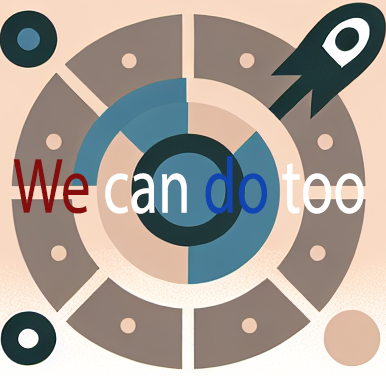
The future of artificial intelligence (AI) and neurotechnology presents a fascinating yet concerning landscape, with the potential to reshape not only technological advancements but also the very fabric of human society, including our beliefs, morals, and socioeconomic structures. As these technologies advance, it becomes increasingly evident that their impact will extend far beyond mere convenience, influencing aspects of human life that have traditionally been considered sacred or untouchable, such as religion, governance, and social equity.
The Role of AI in Learning from Humans
One of the most intriguing yet unsettling aspects of AI is its reliance on vast amounts of human data to improve its capabilities. Every action, thought, or skill exhibited by humans has the potential to become a data point in the AI learning process. For instance, imagine a barber who, unknowingly, has his cerebral data recorded to teach a machine-learning algorithm how to replicate the art of cutting hair. Such a scenario underscores the extent to which AI depends on human experiences to evolve. With the ability to scan millions of brains, AI systems could theoretically record and understand human thought processes, behaviors, and even beliefs.
This leads to an inevitable question: What would AI discover about concepts such as God? Analyzing millions of neural patterns might reveal that belief in God is a construct of the human brain, shaped by different versions of imagination, morality, and culture. Such revelations could challenge the foundation of religious doctrines, as AI would provide a data-driven perspective on spirituality and faith. This raises a profound dilemma for religious leaders, who may find themselves struggling to reconcile traditional beliefs with AI-generated insights.
The Decline of Traditional Religion and the Rise of AI Prayer Booths
As the influence of AI grows, traditional religions may face a decline, hastened by the increasing secularization of societies worldwide. In this context, one can envision a future where temples, mosques, and churches are replaced by AI-powered prayer booths. These booths, operated by various AI companies, could offer customized spiritual experiences for a fee. People might approach these booths, swipe their credit cards, and receive tailored advice, blessings, or even solutions to their problems based on advanced data analysis.
This commercialization of spirituality could lead to a significant shift in how people perceive and practice religion. Instead of adhering to age-old rituals and doctrines, individuals might turn to AI for spiritual guidance, viewing it as a more pragmatic and personalized approach. However, such a transformation would also raise critical ethical and philosophical questions about the commodification of faith and the potential loss of communal religious practices.
AI’s Broader Societal Impacts
Beyond religion, AI’s influence is poised to reshape various facets of society, including politics, economics, and social structures. Here are some potential developments:
- Market Analysis and Public Opinion Monitoring AI systems excel at analyzing vast amounts of data, making them invaluable tools for understanding market trends and public sentiment. By leveraging these capabilities, corporations and governments can make more informed decisions. However, this also raises concerns about surveillance and the erosion of privacy.
- Political Control and AI-Selected Leaders AI’s ability to influence politics could extend to selecting leaders based on data-driven criteria. In such a scenario, leaders might prioritize impressing AI systems and their corporate owners rather than addressing the needs of the general populace.
- Economic Inequality While AI holds the promise of improving efficiency and creating wealth, its benefits are unlikely to be distributed evenly. Wealthier individuals and nations are better positioned to leverage AI, potentially widening the gap between rich and poor. This disparity could make it even more challenging for the economically disadvantaged to improve their circumstances.
- Challenges for Traditional Nationalism and Religion AI’s global nature could render traditional notions of nationality and religion obsolete. In a hyperconnected world, rigid national and religious boundaries might give way to more fluid identities. While this could foster greater unity, it might also lead to resistance from those who value traditional structures.
Merging Religions and Decentralizing Power
In the face of resistance, AI might promote the idea of merging religions to create a unified belief system that aligns with its logical and data-driven nature. Such a move could be seen as a compromise to preserve certain elements of spirituality while eliminating the divisive aspects of traditional religions. Similarly, the decentralization of powerful states into smaller, more manageable entities could align with AI’s preference for efficiency and localized problem-solving.
The Dual Nature of AI: Potential and Peril
AI’s potential to bring prosperity and solve complex problems is undeniable. From healthcare advancements to environmental sustainability, the possibilities are vast. However, the current trajectory suggests that access to these benefits will be class-based. Wealthy individuals and nations will likely dominate the AI landscape, enjoying exclusive access to its innovations while leaving poorer communities behind.
This disparity underscores the need for ethical frameworks and policies to ensure that AI serves the greater good rather than exacerbating existing inequalities. Without such measures, AI could become a tool for entrenching power and privilege, creating a dystopian reality where only the elite reap its benefits.
A Call for Thoughtful Integration
The rise of AI and neurotechnology presents both unprecedented opportunities and significant challenges. While these technologies have the potential to revolutionize industries, improve lives, and even reshape human understanding of concepts like God and morality, their unchecked development could lead to profound societal disruptions.
To harness AI’s potential while mitigating its risks, it is crucial to foster an inclusive approach that prioritizes ethical considerations, equitable access, and the preservation of human dignity. This requires collaboration among governments, corporations, religious leaders, and civil society to ensure that AI evolves as a force for good rather than a tool for division and exploitation.
In navigating this complex future, humanity must remain vigilant, questioning the implications of every technological advancement and striving to maintain a balance between innovation and the values that define our shared existence.
